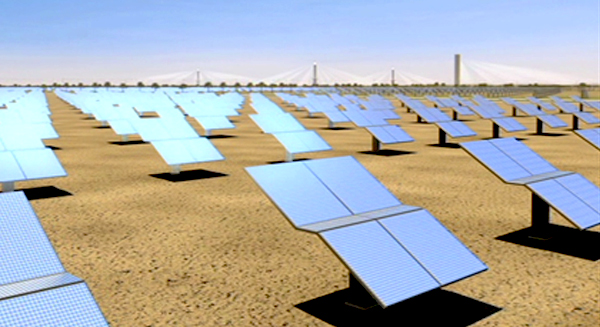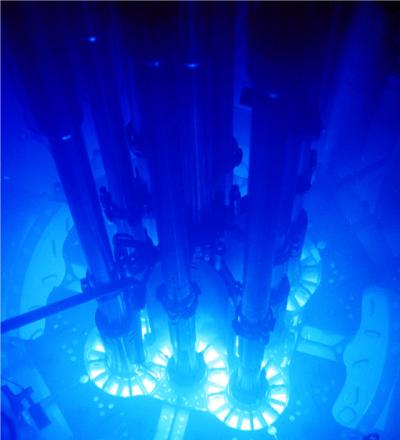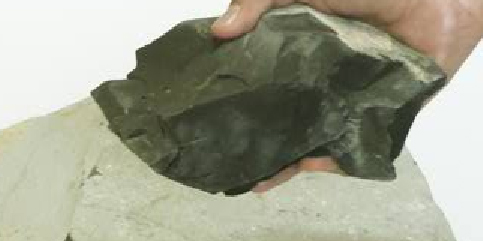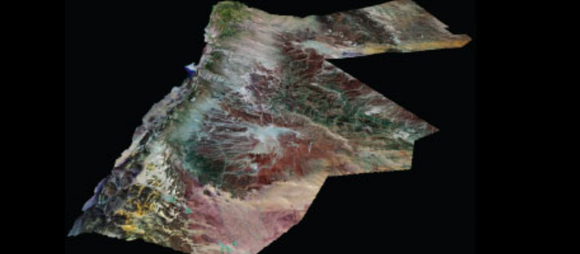Jordan Energy Sector
97% of Jordan’s energy needs are currently being satisfied by imports. Jordan’s energy bill is around 23% of the GDP. Demand for electricity will continue to rise from 2,260 megawatts in 2008 to 6,000 megawatts by 2020.

Energy Sector
Content
>Discovery of Uranium
>Oil from Shale
>Clean Energy
It is a paradox that this analysis of Jordan’s economic future must begin with its energy sector. For Jordan has long been known as having almost no indigenous sources of energy.
According to Dr. Ghaleb Maabreh, Managing Director of NEPCO, “97% of our energy needs are currently being satisfied by imports”—at the crushing cost of up to 25% of Jordan’s annual GDP.
Yet, it is precisely upon new energy new initiatives and strategies that Jordan places its greatest hopes for future economic growth.
Jordan is sitting on the 11th largest uranium reserves the in world.
In a nutshell, the reason for this is as follows. Since at least the 1970s, recognizing that it had almost no natural resources or energy sources, Jordan began, somewhat desperately, to explore its vast desert regions to the east in the hope of finding something of economic value.
By 2007, Jordan “hit pay dirt”—it didn’t find “black gold”—oil—instead it found “yellow cake”—uranium. Jordan is sitting on the 11th largest uranium reserves the in world.
That is not all. When Jordan started looking into its energy problem, it found many possibilities, including clean energy, oil from shale, and perhaps even liquid oil wells may be found. There are also possibilities in energy conservation policies. New technologies are coming on line for all of these—and all of them offer many business, investment, and employment opportunities.
The Jordan Business Journal explains what all this means: “Heavily dependent on fuel imports, accounting for nearly 20% of GDP last year, and facing increasingly high and fluctuating energy costs, Jordan has turned its interest into other alternative sources of energy. Guided by the National Energy Strategy of 2007, a new energy mix is being sought for the country; 29% of Jordan’s energy needs are to be met by natural gas, 14% from oil shale, 10% from renewable energy  sources and 6% from nuclear energy by 2020.”
sources and 6% from nuclear energy by 2020.”
Let’s look at each.
Jordan’s Big Bonanza—The Discovery of Uranium
When King Abdullah II heard the news, he expressed the feeling of all Jordanians: “For the first time in our history, we are sitting on a commodity that people are interested in.”
On May 15, 2009, under the headline “Uranium provides Jordan with spark for much-needed economic bonanza,” the London Times reported:
Jordan, one of the few Middle East countries with no oil, and long one of the poorest in the region, now finds itself on the brink of a potential economic bonanza. It has discovered uranium in huge quantities.
Multinational companies are queueing up to start mining operations. Jordan is proposing to build a nuclear reactor and save almost 20 per cent of its gross domestic product now spent on importing fossil fuels.
The small desert kingdom is set to lead the way in nuclear power production, opening its first nuclear plant in six years’ time, and eventually exporting energy to all its neighbours.
Jordan immediately sought nuclear expertise to develop its newfound wealth. It notified the IAEA, adopted comprehensive laws, created a nuclear regulatory commission, and began letting contracts to complete exploration, identify mining sites, and build nuclear power plants. Jordan now sits on the Board of Governors of the IAEA. 
In October 2009, Jordan announced a site feasibility study for its first nuclear power plant, to be located near Aqaba. Expected to generate 750 to 1,100 megawatts of electricity, it was scheduled to be operational by 2020. Then in July 2010, the United States threatened to withhold all financial aid if Jordan went ahead. Jordan refused to relinquish its right to enrich uranium.
By October, the US and Jordan reached a compromise agreement that Jordan would only delay its power program.
In early 2010, France’s Areva signed a joint venture to mine uranium in central Jordan under a 25-year concession. In May 2010, Jordan had shortlisted Areva, Canada’s AECL and Russia’s Atomstroyexport in a competition to design two power plants with a total capacity of 2,000 megawatts. Plans are now going ahead, sites prepared, and bids scheduled for several nuclear power plants to be operational by 2030.
The Jordan Business Journal puts it this way: “Jordan’s nuclear power portfolio seems…to be in full swing. The discovery of an estimated 140,000 tons high-grade uranium reserves only a few feet below the earth’s surface has been a godsend to the nation.”
It is expected that substantial funds will begin flowing into Jordan for mining, processing, and marketing uranium on world markets; and for site preparation and construction of planned nuclear power and desalinization plants. According to Maher Al Hijazin, undersecretary to the Jordan Natural Resources Authority,
“uranium deposits exist in Jordan, and the French Company AREVA is now exploiting that. But there is room for other companies to invest in exploration and exploitation.”
Second Potential Bonanza—Oil from Shale
While uranium is a fact-in-waiting—needing only to be mined and processed to bring it to market, oil from shale is only a possibility. But it seems to be coming closer to reality. 
The facts are these. Exploration has confirmed that Jordan has at least 500 bn boe (barrels of oil equivalent)—which, according to Maher Al Hijazin, of the Jordan Natural Resources Authority, is not only enough to “turn Jordan into a net-exporting oil country,” but “enough to last Jordan hundreds of thousands of years.”
But oil from shale is new and untested.
Nevertheless, although while it is true that, as Al Hijazin admits, “extracting oil shale as a complete, commercial plant does not exist yet,
Jordan Natural Resources Authority,
Maher Al Hijazin
We would definitely like to see more investors in the field of oil shale
”a number of companies believe that they can do it. Thus, Jordan has signed agreements with Jordan Shale Company (a subsidiary of Royal Dutch Shell), Petrobras of Brazil, RAO UES of Russia, and TAQA of Abu Dhabi, all of whom are exploring for the right shale deposits to try their technologies on.
If any are successful, Al Hijazin hopes that “the first commercial oil shale project will be in Jordan in the next few years;” and that Jordan will gain from any technology transfer, so that one day Jordan will “take the flag and go around the world exploiting oil shale.”
Intissar Al Kindy, General Manager and Country Chair of Shell Jordan, says his company has developed a new environmentally friendly type of technology that it is eager to try called ICP, which does not require the shale to be dug out, but inserts heaters and leaves the rock in place. If this is successful, she says, it “may give Jordan the ultimate solution it is looking for.” 
These are heady hopes. But there is another use of oil shale based on more solid reality. Estonia’s Eesti is already successfully operating two plants for burning shale without extraction to produce electricity. Jordan agreed with Eesti to prepare a feasibility study for building one in Jordan, which is planned to be operational by 2015.
“We would definitely like to see more investors in the field of oil shale… and our policies and regulations are changing all the time to accommodate local and foreign investors,” says Al Hijazin.
Clean Energy and Energy Conservation
Jordan’s National Energy Strategy requires that renewable energy must constitute 10% of the energy mix by 2020, and has adopted comprehensive renewable energy laws and policies to attract investment in new wind and solar technologies, which is to be complemented by energy efficiency.
“We believe renewables are a key part of our strategy,” insists Khaled Al Irani, Minister of Energy and Natural Resources. 
“That’s why the first thing we did was to issue a special law on renewable energy and energy efficiency….We are now doing the policies and procedures, feed-in tariffs and other forms that are attractive to the private sector to come and invest in renewable energy in Jordan. We believe that by the end of this year, the information will be clearer for investors to come, but parallel to that, we have also tendered projects like wind projects. Most of our energy sector—or all now—should be or will be an attraction to the private sector to come and invest.“
|
loading the player….
|
Jordan is pursuing all types of wind and solar energy alternatives. Bassem Farradj, Secretary General Amman Chamber of Commerce, says that,
“ Renewable energy in Jordan is very exciting and we have been focusing on this…. We have a plentiful amount of sun here and this is a blessing we should tap into. The funds are there, technology is there, and we should really look into this. We also have wind resources due to our elevation and temperature gradients which help generate turbulence that we can use a natural resources for wind energy. The renewable energy plans for Jordan are on the right track….”.
Khaled Al Irani
,
Minister of Energy and Natural Resources
Most of our energy sector—or all now—should be or will be an attraction to the private sector to come and invest.
Moyad Awad, General Manager of Clean Energy Concepts, says his company is set up to bring renewable resource projects to Jordan by partnering “with companies who have developed, constructed, and operated similar projects worldwide.”
The role of Clean Energy Concepts, he says is: “we bring the funds, pay part of the equity, solicit with big institutions around the world who have funds dedicated to renewable energy….We can raise enough capital to be equity partners. We help raise the funds for the debt and we work with our strategic partners to come up with the complete finance for the project.”
Oil Drilling and Oil Services
While it may not be part of the national energy strategy, there were once some active oil fields in Jordan in the 1980s, and although they are now dry, there is reason to think new oil fields may yet be found. “Jordan is under-explored when it comes to hydrocarbons,”
says Ala Nuseibeh, CEO of KAN International Petroleum Services, which is a private company serving the oil and natural gas sectors with drilling services, exploration/production, oil field services, and support services for all on-going operations.” 
Of Jordan’s potential to find oil fields, Nuseibeh says,“There are companies here in Jordan who will likely start drilling within the next six months and hopefully at this time next year in our next interview we will be able to say that we have found oil and have wells producing 300-400 barrels a day.”
Nuseibeh also sees Iraq oil featuring more prominently in Jordan’s energy future. “For Iraq, Jordan will be the major gateway to the country and we took initiative in setting up shop there and putting people on the ground….Now there are 30-40 international oil companies signing up to conduct business in Iraq…and we have been very successful the last eighteen months by entering Iraq on a strategic basis.”